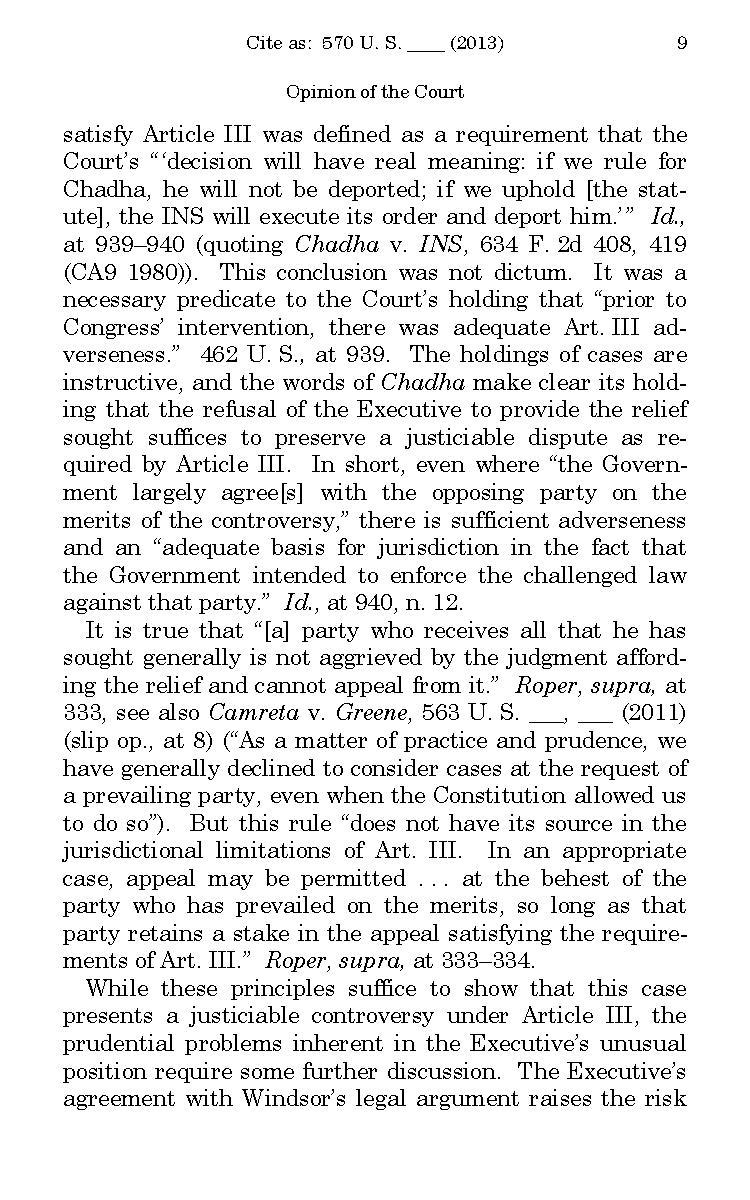satisfy Article III was defined as a requirement that the Court's "'decision will have real meaning: if we rule for Chadha, he will not be deported; if we uphold [the statute], the INS will execute its order and deport him.'" Id., at 939–940 (quoting Chadha v. INS, 634 F.2d 408, 419 (CA9 1980)). This conclusion was not dictum. It was a necessary predicate to the Court's holding that "prior to Congress' intervention, there was adequate Art. III adverseness." 462 U. S., at 939. The holdings of cases are instructive, and the words of Chadha make clear its holding that the refusal of the Executive to provide the relief sought suffices to preserve a justiciable dispute as required by Article III. In short, even where "the Government largely agree[s] with the opposing party on the merits of the controversy," there is sufficient adverseness and an "adequate basis for jurisdiction in the fact that the Government intended to enforce the challenged law against that party." Id., at 940, n. 12.
It is true that "[a] party who receives all that he has sought generally is not aggrieved by the judgment affording the relief and cannot appeal from it." Roper, supra, at 333, see also Camreta v. Greene, 563 U.S. ___, ___ (2011) (slip op., at 8) ("As a matter of practice and prudence, we have generally declined to consider cases at the request of a prevailing party, even when the Constitution allowed us to do so"). But this rule "does not have its source in the jurisdictional limitations of Art. III. In an appropriate case, appeal may be permitted ... at the behest of the party who has prevailed on the merits, so long as that party retains a stake in the appeal satisfying the requirements of Art. III." Roper, supra, at 333–334.
While these principles suffice to show that this case presents a justiciable controversy under Article III, the prudential problems inherent in the Executive's unusual position require some further discussion. The Executive's agreement with Windsor's legal argument raises the risk

